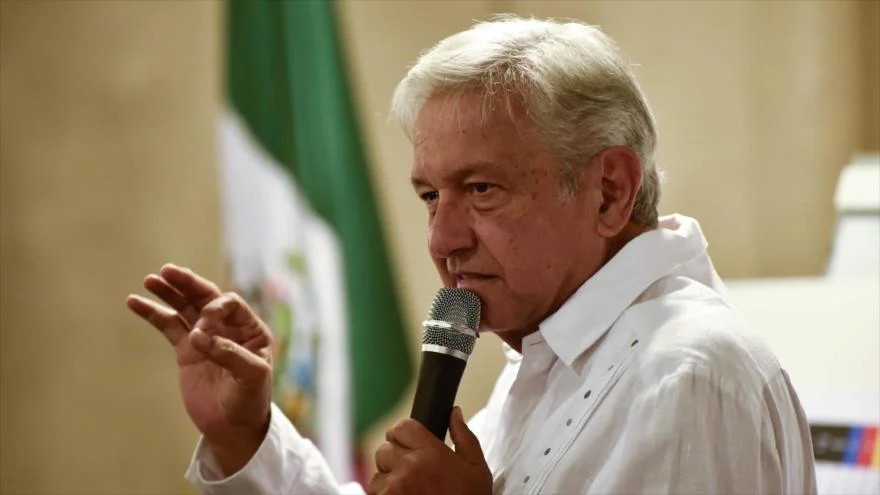Round 7 of the NAFTA Negotiations and Mexican Politics
Mexican, U.S., and Canadian negotiators are currently meeting in Mexico City for the seventh round of North American Free Trade (NAFTA) negotiations. This round will deal initially with the least contentious issues, thereby opening the way to tackling the most contentious one. With the Mexican presidential election on July 1 rapidly approaching, however, arriving at an agreement on a “modernized” NAFTA is looking increasingly problematic.
What is at Stake: Mexican National Dignity
Protest against Donald Trump, Mexico City, 2017
This is because the negotiations are mired in emotionally charged issues—on all sides. Probably the most salient one for Mexico is the U.S proposed wall along the Mexican-U.S. border. Just before this latest round of talks began, President Trump lost his temper in a phone conversation with Mexican president Peña Nieto, when the latter, once again refused to pay for the wall. The conflagration led to the cancellation of a planned meeting between the two leaders. The wall issue, the embodiment of President Trump’s denigration of the Mexican national character, has aroused the ire of a large cross-section of the Mexican public who see their current government as weak in the face of the U.S. president’s bullying. Peña Nieto’s 2016 invitation to Donald Trump to visit Mexico to placate the U.S. president backfired, making the Mexican president look weak; his approval rating sunk to 17%.
The front-runner in the Mexican presidential election is Andrés Manuel López Obrador (AMLO), the candidate for the electoral coalition, Juntos Haremos Historia (Together we will make History). AMLO currently has a 40 percent approval rating, nine points ahead of the right-centre PAN (Popular Action Party) presidential candidate, Ricardo Anaya. AMLO has taken the position that because of the strained relations between Mexico and U.S., NAFTA should not be re-negotiated until after the July presidential election. He has criticized the wall, the weakness of the current Mexican administration, and U.S. maltreatment of Mexican migrants; he says that he favours the re-negotiation of NAFTA to achieve a “just” and “equitable” settlement that does not harm the country’s productive sectors. Meanwhile, civil society organizations, protesting the secrecy surrounding the current round of negotiations are demanding that the negotiations be suspended. They claim that their opponent in these negotiations (Donald Trump) is an uncompromising racist while ordinary Mexican citizens have no voice in the current re-negotiation process.
Substantive Issues cannot be resolved by July 1
Andrés Manuel López Obrador
Aside from the intractable issue of the wall, it is unlikely that the substantive issues that have yet to be resolved will be agreed upon prior to the Mexico’s July 1 election. These issues include the U.S. demand that autos imported from Mexico contain a minimum of U.S. made components, that the binational panels for the resolution of NAFTA trade disputes be eliminated, and that a clause be inserted automatically terminating NAFTA after five years. Mexico (and Canada) are vehemently opposed to these U.S. demands. Then there is agriculture, which is another topic to be addressed in the current round. Mexican corn interests are once again mobilizing: they are calling on the government to stake out a position limiting the import of grains under NAFTA, claiming that national producers can supply local companies and urging the government not to search out alternatives to U.S. corn from other foreign markets. AMLO has claimed he will act in the interests of the country’s corn farmers if elected, but he will be confronted with powerful U.S. agricultural interests. The U.S. farmers’ organization, Farmers for Free Trade, is in Mexico City to make sure that American farmer have a seat at the negotiating table and that the benefits obtained from the original agreement remain in place.
Pulling out all the Stops to get Agreement is not Working
Negotiations with the U.S. are not getting any easier. This is so even though the current Mexican and Canadian administration have pulled out all the stops in their efforts to retain NAFTA and its perceived advantages. Mexican and Canadian officials have held endless meetings with U.S. governors, whose states have a vested interested in the continuation of NAFTA. Mexico alone held 250 meetings in a single year—with Trump administration officials, congress people, governors and representatives of the private sector. All this enormous lobbying effort has done little to alter the entrenched position of the U.S. negotiating team. Meanwhile, the Mexican private sector, which strongly supports all efforts to retain NAFTA, backs the current PRI Peña Nieto administration and the 2018 PRI presidential candidate, José Antonio Meade, who is running third with an approval rating of 19.3 percent.
The Mexican public will not support a re-negotiation of NAFTA that fails to grant Mexico a dignified and just agreement. Now, the gulf separating Mexican and the U.S. from agreement on substantive issues is a gaping one. With AMLO in the driver’s seat after July 1, Mexico will be even less likely to accommodate the demands of the U.S. administration. The best hope might be that the U.S. mid-term elections bring some alteration in the U.S. negotiating position. However, Mexico’s position will have significantly hardened by that time.



